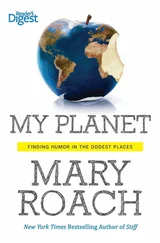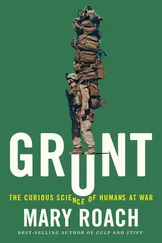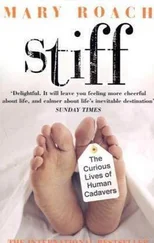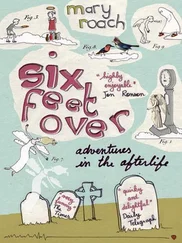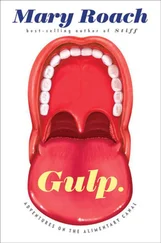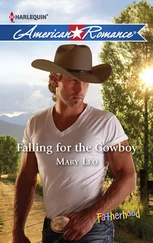Romanenko predicts trouble on a Mars mission. “ Five hundred days, ” he says with evident horror. Romanenko remained for another four months after Laveikin left. Zimmerman writes that he became increasingly unstable and uncooperative, “devoting his time to writing poems and songs” and exercising. I ask Lena to ask him about this phase of the mission. Earlier, I had told her I’d like to hear some of the songs Romanenko composed in space, and this is what she asks about.
“You want us to sing?” Romanenko laughs his grainy laugh. “We would need fifty grams of whiskey!” I apologize for not having brought any.
“I have it,” Laveikin says. “In my office.”
It’s 11 A.M. But I am not Jerry Linenger.
Laveikin leads us through the museum, narrating as he walks. Here are the giants of Soviet rocketry, one per glass display case. Earlier today, I visited a Moscow natural history museum, and sections of it were arranged in this way—not by taxonomy or ecological niche, but by guy: field notebooks from expeditions, some prized specimens, honors from the tsar. The rocket engineers are represented largely by accessories: pens and wristwatches, eyeglasses and flasks.
In his office, Laveikin sits down to look on his computer for a recording of a song Romanenko wrote while on board Mir. The surface of his desk is mostly empty. An appendage like a gangplank protrudes from the front of it. Laveikin gets up to unlock a liquor cabinet and sets down a bottle of Grant’s whiskey and four crystal shot glasses on the plank. It’s a bar. In Russia you can buy a desk with a built-in bar!
Laveikin raises his glass. “To…” He searches for the words in English. “A nice psychological situation!”
We clink our glasses and empty them. Laveikin refills them. Romanenko’s song is playing, and Lena translates: “Sorry Earth, we say good-bye to you… our ship is going upwards…. But the time will come when we will drop into the blueness of the dawn, as a morning star.” And the chorus: “I will fall into the grass and fill my lungs with air. I will drink water from the river….” It’s a catchy pop tune, and I’m bopping in my seat until I notice that the lyrics are making Lena sad. “I will kiss the ground, I will hug my friends….” Lena wipes a tear as the song ends.
People can’t anticipate how much they’ll miss the natural world until they are deprived of it. I have read about submarine crewmen who haunt the sonar room, listening to whale songs and colonies of snapping shrimp. Submarine captains dispense “periscope liberty”—a chance to gaze at clouds and birds and coastlines [7] And to keep their distance vision from deteriorating. When your view extends no farther than a few yards, the muscles that squeeze the lens for near focus can eventually lock in a short-lived “accommodative spasm.” Submarine myopia is enough of a problem that submarine crews aren’t allowed to drive for from one to three days after coming ashore from a long assignment—a good idea for several reasons.
and remind themselves that the natural world still exists. I once met a man who told me that after landing in Christchurch, New Zealand, after a winter at the South Pole research station, he and his companions spent a couple days just wandering around staring in awe at flowers and trees. At one point, one of them spotted a woman pushing a stroller. “ A baby! ” he shouted, and they all rushed across the street to see. The woman turned the stroller and ran.
Nothing tops space as a barren, unnatural environment. Astronauts who had no prior interest in gardening spend hours tending experimental greenhouses. “They are our love,” said cosmonaut Vladislav Volkov of the tiny flax plants [8] If the plants are edible, a conflict can arise. As much as astronauts miss nature, they miss fresh food. The diary of cosmonaut Valentin Lebedev includes a story about a batch of onion bulbs taken on board Salyut as part of an investigation of plant growth in zero gravity. “As we were unloading the resupply ship, we found some rye-bread and a knife. So we ate some bread. Then we saw the onion bulbs we were supposed to plant. We ate them right then and there, with bread and salt. They were delicious. Time went by and the biologists asked us, ‘How are the onions?’ “‘They are growing,’ we answered…. “‘Do they have shoots?’ Without any hesitation we replied that they even had shoots. There was great excitement at the communication station. Onions have never bloomed in space before! We asked to speak to the head biologist in private. ‘For god’s sake,’ we told him, ‘don’t get upset, we ate your onions.’”
with which they shared the confines of Salyut 1, the first Soviet space station. At least in orbit, you can look out the window and see the natural world below. On a Mars mission, once astronauts lose sight of Earth, there’ll be nothing to see outside the window. “You’ll be bathed in permanent sunlight, so you won’t even see any stars,” astronaut Andy Thomas explained to me. “All you’ll see is black.”
Humans don’t belong in space. Everything about us evolved for life on Earth. Weightlessness is an exhilarating novelty, but floaters soon begin to dream of walking. Earlier Laveikin told us, “Only in space do you understand what incredible happiness it is just to walk. To walk on Earth.”
Romanenko missed the smells of Earth. “Can you imagine being even one week in a locked car? Smell of metal. Smell of paint, rubber. When girls were writing us letters, they were putting drops of French perfume on there. We loved those letters. If you smell a letter from a girl before you go to bed, you see good dreams.” Romanenko finishes his whiskey and excuses himself. He hugs Laveikin again and shakes our hands.
I’m trying to imagine NASA filling resupply vehicles with sacks of love letters. Laveikin says it’s true. “From all over the Soviet Union, girls were writing letters.”
“To girls,” I say. Glasses are raised.
“You really feel the absence of a woman,” Laveikin tells us. With Romanenko gone, he speaks more freely. “There are sexual dreams, as a substitute. It’s constant through the flight. We were even discussing that maybe we have to take something from the sex shops. It was discussed at IBMP.”
I turn to Lena. What does he mean? “An artificial vagina?”
“ Vagine? ” asks Lena. A discussion ensues. Lena turns back to me. “A mock-up.”
Laveikin breaks into English, as he does sometimes to tweak a translation: “A rubber woman.” A blow-up doll. Ground control, he says, nixed the idea. “They said, ‘If you would do that, then we would need to put it in your schedule for the day.’
“We have a joke. You know we have food in tubes.” I do. Tubes of space borscht are on sale in the museum gift shop. “There are white and black tubes. On the white is written BLONDE. On black one: BRUNETTE.
“But please understand, sexual concerns are far from being the dominant concerns in space. It’s down here on the list.” With his hand, he indicates a level down by his knee. “It would just be a nice supplement. But when we talk about five hundred days, it’s true, this problem starts to grow higher on the list.” He believes a Mars crew should be made up of couples, to help ease the tension that builds during a long mission. According to Norbert Kraft, NASA has considered sending married couples into space. When they asked his opinion on the matter, he discouraged it. His reasoning was that an astronaut might find himself with an untenable choice: jeopardizing his spouse or jeopardizing the mission. Astronaut Andy Thomas, who is married to astronaut Shannon Walker, told me another reason NASA shies away from flying married couples. In the event of a crash or explosion, they don’t want one family to have to endure a double loss, particularly if the couple has children.
Читать дальше

